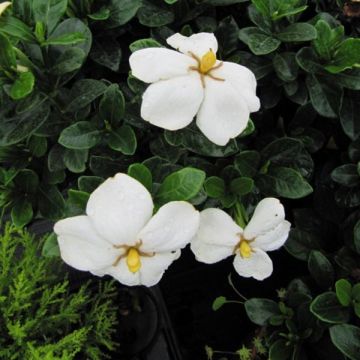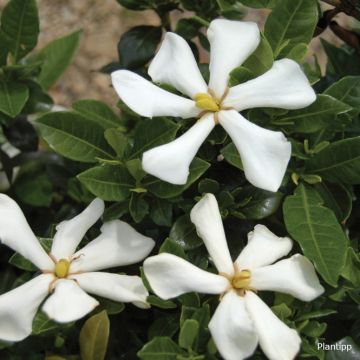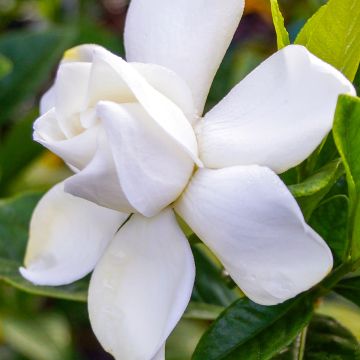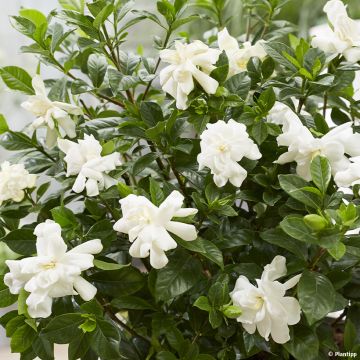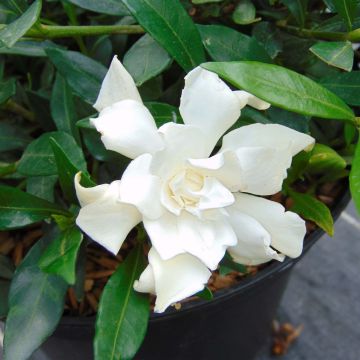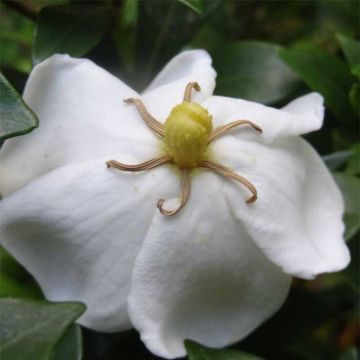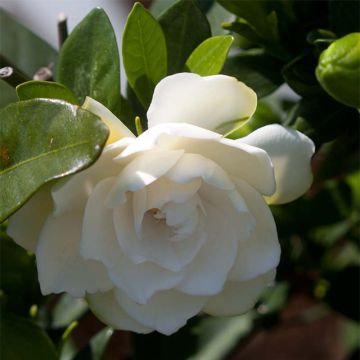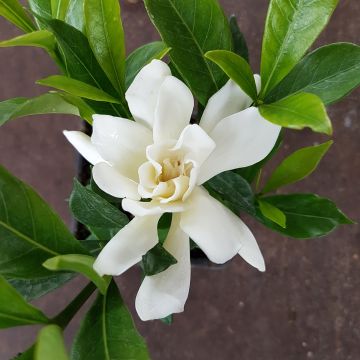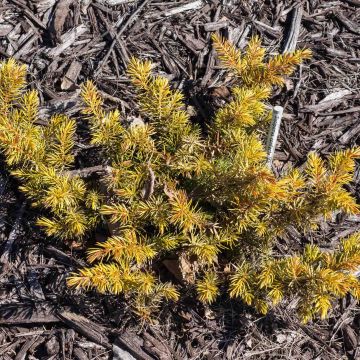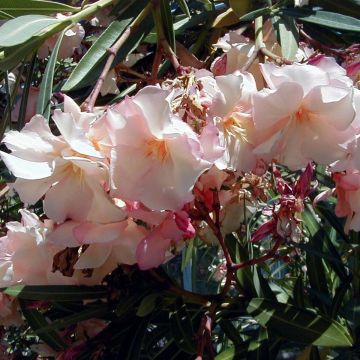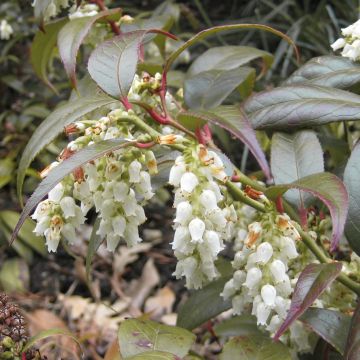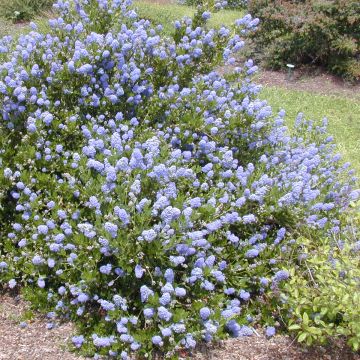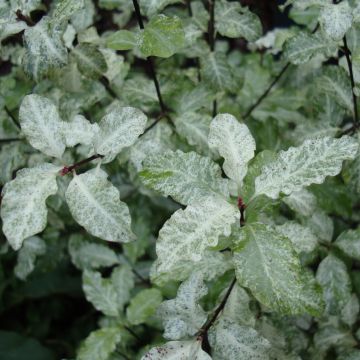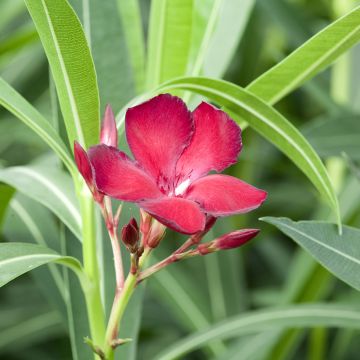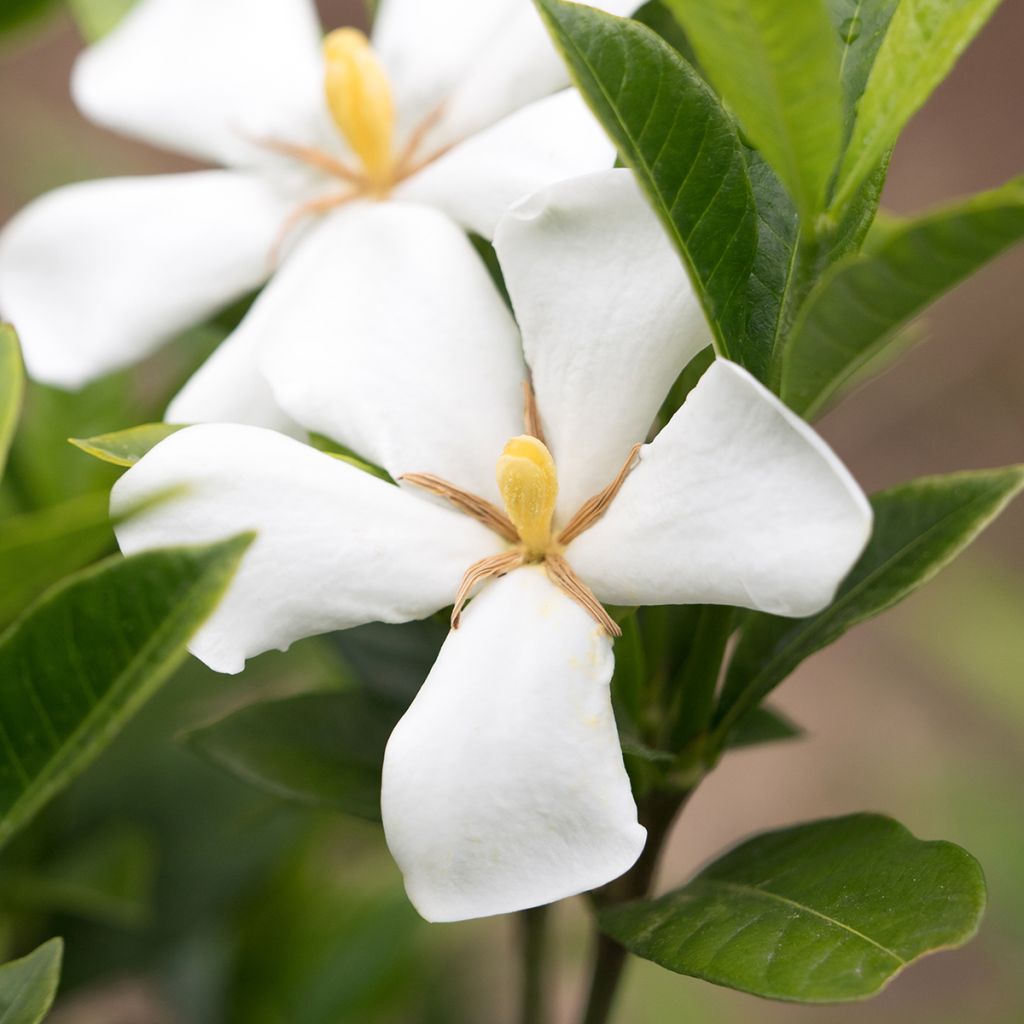

Gardenia jasminoides Sweet Star First Editions
Gardenia jasminoides Sweet Star
Gardenia jasminoides Sweet Star® 'Piiga III'
Cape Jasmine, Common Gardenia
Special offer!
Receive a €20 voucher for any order over €90 (excluding delivery costs, credit notes, and plastic-free options)!
1- Add your favorite plants to your cart.
2- Once you have reached €90, confirm your order (you can even choose the delivery date!).
3- As soon as your order is shipped, you will receive an email containing your voucher code, valid for 3 months (90 days).
Your voucher is unique and can only be used once, for any order with a minimum value of €20, excluding delivery costs.
Can be combined with other current offers, non-divisible and non-refundable.
Why not try an alternative variety in stock?
View all →This plant carries a 24 months recovery warranty
More information
We guarantee the quality of our plants for a full growing cycle, and will replace at our expense any plant that fails to recover under normal climatic and planting conditions.
Would this plant suit my garden?
Set up your Plantfit profile →
Description
Gardenia jasminoides Sweet Star is an excellent American variety with large single flowers, as fragrant as the species, but hardier. This shrub, with a dense and rounded habit, blooms abundantly from May. It also produces flowers sporadically during the summer and re-blooms at the end of the season. Its evergreen, dark green foliage stands out even in winter. Like other gardenias, it likes filtered sunlight, lime-free, rich and slightly moist soils, and dislikes drafts. It will thrive best in gardens along the Atlantic coast that can provide both humidity and warmth. It can also bring interest to a terrace or a large balcony.
Gardenia jasminoides Sweet Star was selected in 2009 in the USA by Michael Dirr. This plant comes from a seed collected in the Beijing Botanical Garden. It is known to reliably withstand cold up to zone 7, according to some sources. The species itself, sometimes called Cape Jasmine, is a shrub of the Rubiaceae family native to Asia. It is frequently found in the wild in Vietnam, southern China, Taiwan, Japan, and India, in mild and humid, subtropical to tropical climates. Its cultivation in China dates back at least a thousand years, and in recent years it has given rise to numerous American cultivars, more or less hardy.
Gardenia 'Sweet Star' 'Piiga III' slowly forms a bushy shrub, heavily branched, slightly spreading, reaching a height of 1.20 m (3 ft 11 in) and a spread of 1.40 m (4 ft 7 in) under good conditions. When grown in a pot, it will remain smaller. Its large white flowers, with a waxy texture, are single and have 6, white to pale yellow petals. Their fragrance is powerful, delightfully intoxicating, addictive. They are particularly abundant in spring. These flowers are solitary in the axils of the leaves, at the top of the branches, and are followed by beautiful orange fruits. The flowers stand out well against the dark glossy leaves, which are slightly smaller than those of usual varieties. They are entire, thick, leathery, with very prominent veins. Its bark is greyish. The Gardenia has a very long lifespan and is more floriferous when young.
Despite their somewhat demanding nature, Gardenias are among the most coveted shrubs by plant enthusiasts. It is undeniable that when the right conditions are met, this shrub proves to be one of the most beautiful in the plant world. The hardiness of certain varieties such as Sweet Star allows for the hope of growing it in slightly harsher climates. Hardiness level can vary with the duration of the frosts, the exposure to dry and cold winds, and the soil moisture content. The Gardenia Sweet Star can be grown in the ground or in a large pot, where it will survive mild winters without damage. However, outside of privileged regions, it is advisable to move it to a cold greenhouse during winter as a precaution. In the garden, camellias, rhododendrons, pieris and Kalmias will make excellent companions for this wonderful shrub.
Plant it in a partially shaded bed, or in a pot in a cool, humus-rich, and light soil. Exposure is important, as Gardenias like warmth (but not drought) and the harsh rays of the sun can scorch their foliage. Place it in partial shade, in a bright spot, well protected from cold and dry winds. Gardenias have roughly the same requirements as camellias.
Report an error about the product description
Plant habit
Flowering
Foliage
Botanical data
Gardenia
jasminoides
Sweet Star® 'Piiga III'
Rubiaceae
Cape Jasmine, Common Gardenia
Cultivar or hybrid
Other Gardenia
View all →Planting and care
Plant Gardenia jasminoides Sweet Star in a pot or in a partially shaded flower bed, in a moist, humus-rich, light, acidic to neutral soil. It dislikes limestone, which causes its leaves to turn yellow. The soil should always remain slightly moist, without being waterlogged. Exposure is important, as Gardenia loves warmth (not drought) and the harsh rays of the sun can scorch its foliage. Place it in partial shade, in a bright location, well protected from cold and dry winds. This shrub does not like to be moved, even when grown in a pot: the flowers abort if you change the position of a budding gardenia. Gardenia has almost the same requirements as camellias, while being slightly more delicate and often less cold-resistant.
Planting period
Intended location
Care
This item has not been reviewed yet - be the first to leave a review about it.
Similar products
Haven't found what you were looking for?
Hardiness is the lowest winter temperature a plant can endure without suffering serious damage or even dying. However, hardiness is affected by location (a sheltered area, such as a patio), protection (winter cover) and soil type (hardiness is improved by well-drained soil).

Photo Sharing Terms & Conditions
In order to encourage gardeners to interact and share their experiences, Promesse de fleurs offers various media enabling content to be uploaded onto its Site - in particular via the ‘Photo sharing’ module.
The User agrees to refrain from:
- Posting any content that is illegal, prejudicial, insulting, racist, inciteful to hatred, revisionist, contrary to public decency, that infringes on privacy or on the privacy rights of third parties, in particular the publicity rights of persons and goods, intellectual property rights, or the right to privacy.
- Submitting content on behalf of a third party;
- Impersonate the identity of a third party and/or publish any personal information about a third party;
In general, the User undertakes to refrain from any unethical behaviour.
All Content (in particular text, comments, files, images, photos, videos, creative works, etc.), which may be subject to property or intellectual property rights, image or other private rights, shall remain the property of the User, subject to the limited rights granted by the terms of the licence granted by Promesse de fleurs as stated below. Users are at liberty to publish or not to publish such Content on the Site, notably via the ‘Photo Sharing’ facility, and accept that this Content shall be made public and freely accessible, notably on the Internet.
Users further acknowledge, undertake to have ,and guarantee that they hold all necessary rights and permissions to publish such material on the Site, in particular with regard to the legislation in force pertaining to any privacy, property, intellectual property, image, or contractual rights, or rights of any other nature. By publishing such Content on the Site, Users acknowledge accepting full liability as publishers of the Content within the meaning of the law, and grant Promesse de fleurs, free of charge, an inclusive, worldwide licence for the said Content for the entire duration of its publication, including all reproduction, representation, up/downloading, displaying, performing, transmission, and storage rights.
Users also grant permission for their name to be linked to the Content and accept that this link may not always be made available.
By engaging in posting material, Users consent to their Content becoming automatically accessible on the Internet, in particular on other sites and/or blogs and/or web pages of the Promesse de fleurs site, including in particular social pages and the Promesse de fleurs catalogue.
Users may secure the removal of entrusted content free of charge by issuing a simple request via our contact form.
The flowering period indicated on our website applies to countries and regions located in USDA zone 8 (France, the United Kingdom, Ireland, the Netherlands, etc.)
It will vary according to where you live:
- In zones 9 to 10 (Italy, Spain, Greece, etc.), flowering will occur about 2 to 4 weeks earlier.
- In zones 6 to 7 (Germany, Poland, Slovenia, and lower mountainous regions), flowering will be delayed by 2 to 3 weeks.
- In zone 5 (Central Europe, Scandinavia), blooming will be delayed by 3 to 5 weeks.
In temperate climates, pruning of spring-flowering shrubs (forsythia, spireas, etc.) should be done just after flowering.
Pruning of summer-flowering shrubs (Indian Lilac, Perovskia, etc.) can be done in winter or spring.
In cold regions as well as with frost-sensitive plants, avoid pruning too early when severe frosts may still occur.
The planting period indicated on our website applies to countries and regions located in USDA zone 8 (France, United Kingdom, Ireland, Netherlands).
It will vary according to where you live:
- In Mediterranean zones (Marseille, Madrid, Milan, etc.), autumn and winter are the best planting periods.
- In continental zones (Strasbourg, Munich, Vienna, etc.), delay planting by 2 to 3 weeks in spring and bring it forward by 2 to 4 weeks in autumn.
- In mountainous regions (the Alps, Pyrenees, Carpathians, etc.), it is best to plant in late spring (May-June) or late summer (August-September).
The harvesting period indicated on our website applies to countries and regions in USDA zone 8 (France, England, Ireland, the Netherlands).
In colder areas (Scandinavia, Poland, Austria...) fruit and vegetable harvests are likely to be delayed by 3-4 weeks.
In warmer areas (Italy, Spain, Greece, etc.), harvesting will probably take place earlier, depending on weather conditions.
The sowing periods indicated on our website apply to countries and regions within USDA Zone 8 (France, UK, Ireland, Netherlands).
In colder areas (Scandinavia, Poland, Austria...), delay any outdoor sowing by 3-4 weeks, or sow under glass.
In warmer climes (Italy, Spain, Greece, etc.), bring outdoor sowing forward by a few weeks.






























